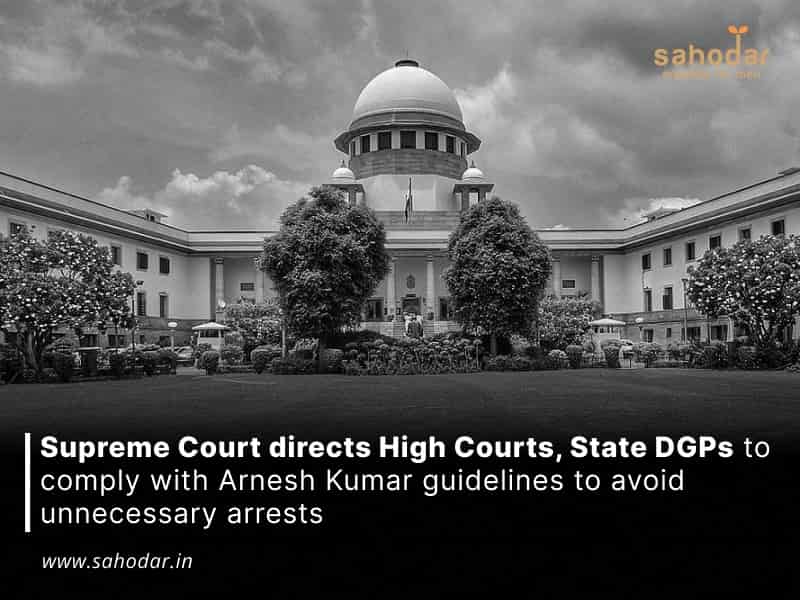On Monday, the Supreme Court ordered the issue of circulars, notifications, and instructions to ensure that police authorities and criminal courts strictly adhere to the guidelines on arrest that was laid down in the 2014 Arnesh Kumar case.
In the 2014 Arnesh Kumar case, the Supreme Court had taken note of the misuse of Section 498a (cruelty to woman) of the Indian Penal Code, especially in connection with dowry demands. In view of how this law is misused, the Court had issued certain guidelines to ensure that arrests should be avoided unless necessary.
A division bench of Justice S Ravindra Bhat and Justice Aravind Kumar has now directed High Courts to frame the directions issued in the Arnesh Kumar case in the form of notifications and guidelines to be followed by Sessions Courts and other criminal courts.
Similarly, the Directors General of Police in all States were also directed to ensure strict compliance with such guidelines.
The Court added, issuance of such derivatives, guidelines, and departmental circulars are to be issued within eight weeks.
Further, the concerned authorities are to submit an affidavit of compliance to the Supreme Court in ten weeks’ time, the bench said.
The bench found that in this case, the High Court had mechanically rejected an anticipatory bail plea moved by the accused and, instead directed the accused to surrender before the trial court and obtain a regular bail.
After the accused submitted an appeal before the Supreme Court, the top court reiterated that an ordinary bail should be granted and mentioning an individual’s right to personal liberty under Article 21 of the Constitution.
The bench also acknowledged that when it comes to serious cases, the Court may use its discretion to allow or reject bail as per the gravity of the alleged offence, the accused’s power to influence the investigation, the possibility of the accused’s absconding etc.
However, in the current case, the Court found that the accused had given full cooperation with the investigation and that were no startling features or elements to disentitle him from being granted pre-arrest bail.
The Supreme Court opined that since the charge sheet was also filed, the High Court ought to have granted him bail as a matter of course.
The Supreme Court also found, “However, the court did not do so but mechanically rejected and, virtually, to rub salt in the wound directed the appellant to surrender and seek regular bail before the Trial Court. Therefore, in the opinion of this court, the High Court fell into error in adopting such a casual approach.”
Therefore, the bench sidelined the order of the High Court and nodded for the bail plea.
Source: https://www.barandbench.com/news/litigation/supreme-court-high-courts-dgp-arnesh-kumar-guidelines-arrest

